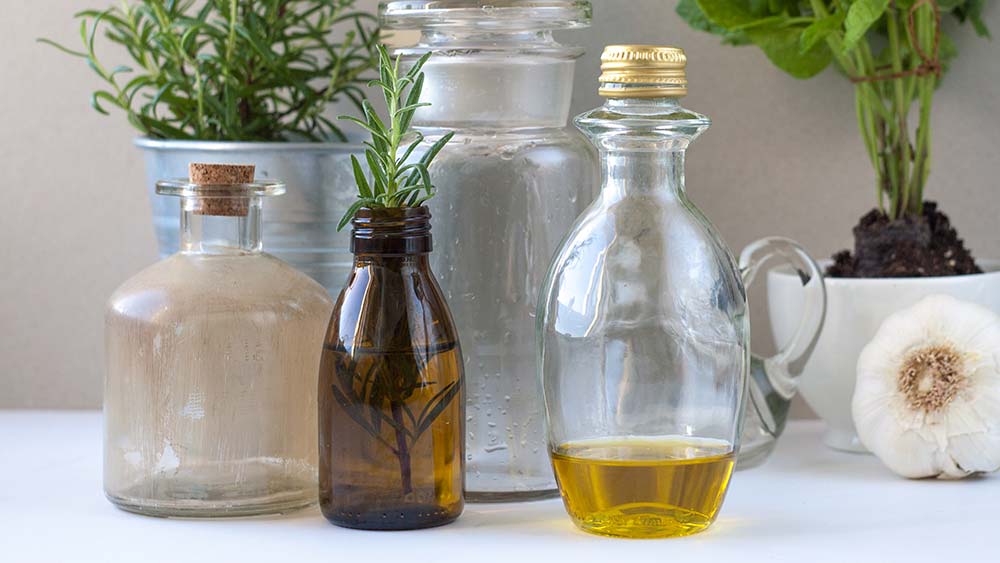
One key to building a better immune system resides in a well-stocked pantry
Reduced immunity is a popular topic these days, but this common problem was prevalent before COVID-19. Low immunity contributes to colds, flu, and other infections, but also increases the risk for cancer and other diseases, even pain and physical impairment, and plays a key role in aging.
Healthy food plays a major role in building and maintaining a robust immune system. In particular herbs and spices are foods that have been used therapeutically for thousands of years. These should still be part of any well-stocked home apothecary.
Prevention of disease and dysfunction should be a primary focus, and when problems arise that same focus should be on finding the cause, not treating the symptoms. Many times, supporting the immune system can be done effectively in your own kitchen.
An apothecary was common during the Middle Ages. It was a shop where a trained person prepared and sold medicines. Of course, these medicines were mainly herbs, roots and natural lotions. That’s all changed as the modern-day equivalent is the pharmacy. Now, we can grow our own natural remedies or buy organic forms in a store or farmer’s market. And, natural dietary supplements containing concentrated high-quality therapeutic foods also can complement a healthy diet.
Today, we know the science of food ingredients, and how powerful they can be to improve not just immunity but to help our overall health and fitness.
Our kitchens should be home to this therapeutic nutrition — delicious, easy-to-make meals and snacks, obtained from a well-stocked supply of whole food healthy ingredients, including such items as ginger, garlic, turmeric, blueberries, broccoli sprouts, and others — not to mention fresh cilantro, parsley and basil, oregano, cinnamon, tarragon, rosemary, caraway and cayenne.
All these and other therapeutic items are easily administered during meal preparation — a little of this, a bit of that — depending on the meal or snack, the day, cravings, the season, and how we feel.
Dietary Supplements
Most people think about dietary supplements during cold season, or the latest pandemic. Unfortunately, too many popular supplements don’t help, or may even suppress, immunity. The first defense is healthy food, supplementing this with natural food-based products can further improve health.
It’s not just infections, but asthma and allergies, a history of cancer, and other conditions are also indicative of reduced immunity. The problem is also associated with oxidative stress which is due to increased free radicals, and reduced antioxidant nutrients. Foods like turmeric, ginger, and food-based supplements can help combat this chemical stress because they contain not just antioxidants, but much more.
Of course, the best foods containing the greatest antioxidants won’t work well in a body consuming junk food, which more powerfully drives the inflammatory process due to sugar consumption.
In addition to reduced immunity and aging, oxidative stress can also disturb muscle function leading to physical impairment, increase fatigue, promote chronic inflammation that leads to pain, hinder protein and fat metabolism, and slow recovery from even a normal day’s activity.
An apothecary can provide healthy food ingredients with antioxidant effects, beyond the traditional vitamins C, E, and beta-carotene. Selenium, zinc, and thousands of phytonutrients can be obtained by eating a variety of healthy foods, spices, herbs and other foods. As mentioned previously, organic turmeric and ginger — best raw — also have healthy actions in the body.
The most important and most powerful antioxidant is a substance called glutathione. In addition to natural forms of vitamin C and E, the amino acid cysteine is even more therapeutic. It is a component of whey — in powder form it’s a common dietary supplement and whey cheese (ricotta) can often be found in stores and is easy to make from organic milk.
Sulforaphan, a sulfur compound in cruciferous vegetables such as broccoli, kale, Brussels sprouts, and cabbage, is very potent in helping the body produce glutathione. The best source is two- to three-day-old broccoli sprouts (before their leaves turn dark green). These are easy to sprout at home for use in salads, smoothies and garnishes.
In addition to using these foods in recipes and eating them as snacks, you can add them to a smoothie or shake each day. These ingredients are also used to create MAF Supplements, along with natural versions of vitamins.
Along with turmeric, ginger, broccoli sprouts and whey, blueberries may be one of the best single-food source of these nutrients to help combat oxidative stress. Spinach ranks high too.
Even my Fat-Burning Coffee recipe can be a powerful immune booster when made with egg yolk, cacao, coconut oil and cinnamon!
Other Lifestyle Factors
Exercise can be key for healthy immunity too.
Fortunately, the human body is equipped with a powerful antioxidant system to control oxidative stress. a key component of this system includes aerobic muscle fibers, which uses nutritional antioxidants to control oxidative stress.
However, exercise that is too intense and/or too long in duration can induce stress and impair immune function.
Vitamin D is also a vital part of building immunity. While best obtained primarily from healthy sun exposure, D3 can be an important food and supplement source. It’s important to know your vitamin D levels, which are easily obtained from a blood test.








